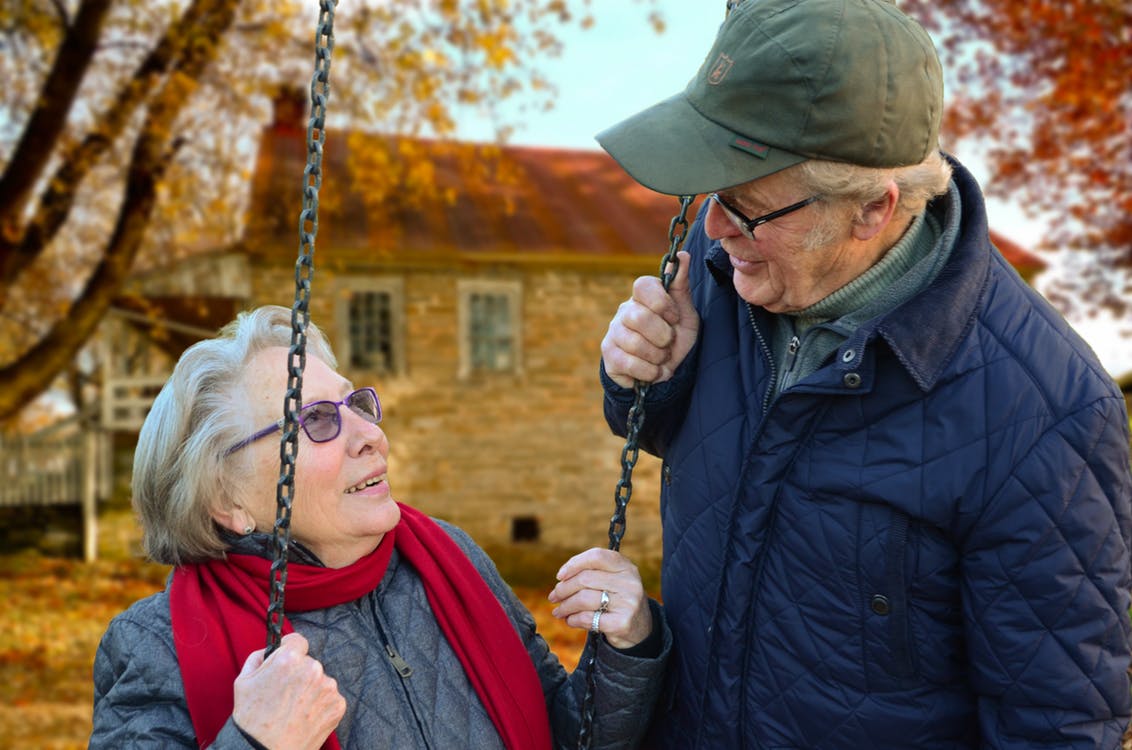The Psychological Impact of Aging on Couples
Aging is an inevitability of life and one that few people look forward to. It is also a significant concern, particularly for couples. Growing old is unpredictable, with people deteriorating at different rates, and requiring other forms of care. For those who are becoming older and are no longer capable of being 100% independent, assisted living facilities (ALFs) are available. Here, they can maintain their independence to a degree, while having medical and caring support on site available at the same time.
The Psychological Impact of Aging
Aging is a life transition, and all the big life changes come with significant psychological issues. When people age, they often start to experience a fear of the future. They worry about how long they have left, whether their memory will deteriorate, whether they can continue to have an active social life and play a role in the lives of their children and grandchildren. Additionally, as people age, they are more likely to experience grief as others around them start to pass away. It is also more common for them to experience ageism and discrimination, making them feel as if they are losing their independence.
These are all very significant issues that must be addressed properly. This is also because the psychological effects of aging have a direct impact on physical health as well. In fact, this is something specifically discussed by the American Psychological Association, who have released some statistics to demonstrate the link between psychological and physical well-being in the elderly. Specifically, they found that:
- 50% to 70% of all visits to primary care physicians by the elderly are about stress, depression, or anxiety.
- Older people who have significant or chronic health conditions are more likely to also suffer from depression. Furthermore, untreated mental health conditions often lead to poorer outcomes in physical health conditions, as people with conditions like depression tend to have a weaker immune system as well.
- Depression is one of the leading causes of disability according to the World Health Organization.
- Aging individuals who have their mental health needs addressed require less other forms of medical care as well.
The Psychological Impact of Moving into Assisted Living
Assisted living has been shown to be very effective, offering a viable alternative to hospitalization or nursing homes. At the same time, the psychological impact of making this move is undeniable and must be understood. Some of the key stressors include:
- Moving stress, caused by having to pack belongings and getting everything done on time.
- A sense of loss and grief, caused by having to say goodbye to something for a final time, knowing that they will never return.
- Fear of the unknown, having to move to an unfamiliar place.
Put together, these factors can cause “relocation stress”, which can lead to depression, difficulty sleeping, and other health problems. While all of this is properly understood, and a lot of help is out there for young people helping their mother and father into assisted living, as well as for seniors to help them transition, a key factor that is often not addressed is what needs to happen if the move relates to a couple.
It is undeniable that moving into an ALF has tremendous benefits for the person who needs it. In fact, various studies, including one posted in The Journals of Gerontology, have demonstrated that those in these facilities have an increased quality of life, better health, and more social cohesion and engagement. However, what happens when one person requires assisted living, but the other person does not?
What to Look for in a Facility that Caters to Couples
As you can see from the above, it is hard to age, and even harder to admit that more help is needed. This applies in particular to couples, where one person may have significant health needs, whereas the other does not. There are two added difficulties in this. Firstly, it means one person has to move when they are not ready for it yet and, secondly, that they often feel they have failed in properly looking after their partner. If this is happening to your parents, do try to reassure them that, in fact, making the decision to move to an ALF is the best that they can do to look after each other. Do also reassure them about the fact that there are plenty of facilities available that cater specifically to couples.
Finding Assisted Living Facilities
If you are at the point that your parents agree that they should move to an ALF, even if it is because only one of them needs more intensive care, there are five essential tips that you should follow to make this huge transition as comfortable as possible:
- Make sure you spend lots of time researching the options that are available to them.
If you have elderly parents, and you feel that it is time to find assisted living for them, then it is important that you do so in an inclusive, respectful manner that is mindful of the psychological issues discussed above. Spend time together to look in your area for what is available, giving your parents a choice. It is important that they understand that you are not aiming to take away their independence, nor that you feel they have become a burden on you. Rather, finding assisted living is an opportunity for them to enjoy the highest possible quality of life. Where they want to do this is a decision that they should be 100% involved in.
- Work on your finances.
Moving home is stressful, whether it is the first time you leave home as a young person, or whether you are elderly. The last thing you need at that point is to have increased levels of stress because of finances. It is unlikely that Medicare will cover the full cost of an ALF, although they may provide coverage for some of the care that your parents receive there. If you parents have other health insurance, you will need to look into the coverage they offer as well.
- Talk about the available space.
When in assisted living, your parents will have a space of their own. What that space looks like varies, although it is common to have a private bathroom, bedroom, and living area. Although they will have all this space, it is unlikely that it will be as big as their current home. This means that some difficult decisions will have to be made regarding which pieces of furniture can come, and which have to be said goodbye to.
- Consider your parents’ social needs.
One key factor of importance when helping to find an ALF is that your parents will have high social engagement. In fact, the Journal of Applied Gerontology has written a report on how proper social engagement increases overall mental well-being in the elderly, which in turn improves physical well-being as well. The study focused specifically on activity theory, looking at its impact on depressive symptoms and on life satisfaction. What the study showed was that friendliness of fellow residents and of the staff in the facility was crucial to improving life satisfaction. It also showed that simple things, such as having enjoyable mealtimes, helped to lower the depressive symptoms. What this suggests is that assisted living facilities in which residents are encouraged to interact with one another are likely to be the better ones. This is certainly something that you can discuss with your parents while helping them look for a facility.
- Prepare yourself for future health needs.
Unfortunately, as people age, their health deteriorates, and you must prepare yourself for this. If only one parent required assisted living care, then you have to ready yourself for them needing more intensive care later on in life. The parent that perhaps did not yet need this type of care will get to a point where their health starts to be affected as well. It is best to discuss this to a degree with your parents, concerning building an understanding what their wishes are. But other than that, this is something you will have to prepare yourself for in person.
Aging is one of the greatest tragedies of life. It is a tough time, one in which people start to understand that they are nearing the end. They often feel like they have become a burden on others and this has a significant impact on their overall mental health and well-being. You, as their child, can help mitigate that to some degree by encouraging your parents to agree to move into an ALF, even if only one of the two actually needs it. Show your parents that there is no shame in asking for help but rather that it is a sign of strength. It means that they want to continue to enjoy their life, but in a way in which they receive support, safe, and comfortable. Last but not least, remember to visit them often, you are part of their social lifeline!
Tia, and TipsfromTia.com is trying to keep you looking good and
feeling good, from the inside out. If you’ve got a problem or a tip email me! Be sure to Like and share on Facebook or Follow on Twitter or Instagram



